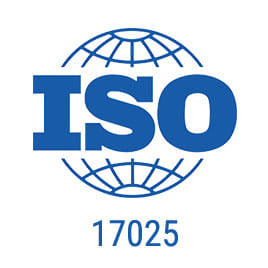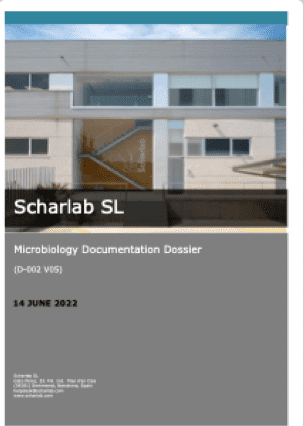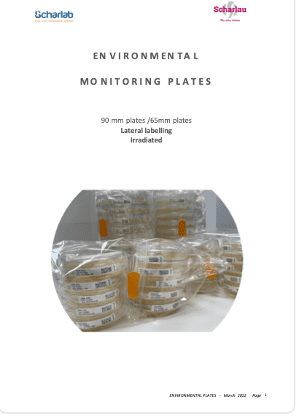Quality in culture media
27 de October de 2023Scharlab offers dehydrated and prepared culture media. Additionally, our range includes additives, supplements, reagents, and dyes, products for the confirmation of biochemical tests and other products for microbiology.
Quality, certificates, regulations and standards in culture media
Our range includes more than 400 culture media. They are manufactured following our quality system, according to ISO 9001: 2015 and ISO 13485. Futhermore, our media comply with validated methods, international standards and microbiological guidelines (ISO, FDA, Pharmacopoeias, etc.). All this means that they can be used for a wide range of applications for both the clinical and industrial sectors (pharmaceutical, cosmetics, food, water and environmental analysis, service provider laboratories, etc.).

ISO 17025 accreditation
Our culture media are tested in a laboratory with ISO 17025 accreditated laboratory for the quality control of ready-to-use culture media, following internal methods based on ISO 11133 Annexes C2, E, F, and K. Accreditation No. 1392/LE2585; in ISO 4973 (cosmetics) and the European Pharmacopoeia, Chapters 2.6.1, 2.6.12, and 2.6.13. Accreditation No. 1392/LE2870.
The aim of ISO 17025 is to ensure testing and calibration laboratories can guarantee their technical capacity to carry out tests for both external and internal customers.
To this end, laboratories must demonstrate that they possess an operational system, that they are technically proficient, and that they are able to produce technically valid results.
The standard is used to accredit laboratories that want to guarantee to users and consumers that the tests they perform are of high quality and technically competent, as they have been assessed by internationally recognised organisations, such as ENAC (the Spanish National Accreditation Body).
Product specifications and Safety Data Sheets
Product specifications and Safety Data Sheets are available in PDF on our website, www.scharlab.com. They are revised and updated as soon as there is any change in relation to the products (formulation, preparation, standards, control, conservation, format, etc.).
Certificates of Analysis
Certificates of Analysis (CoA) are available for the different batches manufactured in PDF on our web www.scharlab.com. They include both physical-chemical parameters and fertility tests according to the different standards and norms, in particular ISO 11133: 2014, regarding the criteria to be followed in the performance tests for culture media.
BSE free certificate
Scharlab S.L. hereby states that among the raw materials used in its preparation, the bovine constituents belong to the category IB, according to “Note for Guidance EMEA/410/01 Rev. 3”. The bovine tissue are sourced from New-Zealand, and comes from herds declared free from Bovine Spongiform Encephalopathy and Foot-and-Mouth disease after examination by the Veterinary Authorities.
The product does not contain and is not derived from specified risk material as defined in the European Commission Decision 97/534/EC.
The manufacturing process includes boiling at 100°C for a minimum of 5 minutes and instantaneous heating at 150°C minimum on spray drying.
Certificate of Conformity
The Certificate of Conformity (CoC) assures buyers and users that they are working with a BSE-free product.
The Certificate of Conformity is guaranteed by the European Directorate for the Quality of Medicines (EDQM) and the European Pharmacopoeia Commission.
It is only offered to manufacturers of raw materials and one certificate is issued for each type of product, not to the company.
To obtain the certificate, the raw material manufacturer must be ISO 9000 or GMP certified.
Whenever a raw material or process is modified, or when the certificate expires, the manufacturer must apply for renewal.
BSE should not be a concern, because the culture media are not intended for consumption. However, in the pharmaceutical industry, regular media fill tests are carried out on manufacturing equipment to check its sterility. These tests involve simulating the passage of the culture medium through the reactors and manufacturing lines. As such, if the media were contaminated with BSE, they could transmit it to humans or animals via the medicines produced.
Irradiation certificate
Products used in environmental and surface control analysis in sterile wards, such as the production facilities of pharmaceutical industries, are required to be 100% free from particles or any contaminant that could crosscontaminate the zone under test.
For these special situations we offer gamma-irradiated plates with double or triple packaging in order to facilitate transport of the plates from non-sterile to the sterile zone and eliminating the risk of contamination.
For the Media Fill Test (MFT) as used in pharmaceutical and beverage companies, dehydrated and irradiated TSB (Tryptic Soy Broth) is also required, in order to reproduce the production process as realised in the manufacture of actual products.
The product includes an indicative irradiation label that turns from yellow to orange, following the successful completion of the process.
NOTE: If necessary, the irradiation certificate can be requested.
See example of irradiation certificate
Transport tracking document
Our products are specially prepared to enable carriage by different transport methods. Due to the special packaging used, which ensures the integrity of the product during transport (even when the transport occurs at extreme temperatures over a limited time), such storage requirements do not mean that the product necessarily be transported at the indicated temperature.
Our prepared culture media plates have been subjected to room temperature conditions (including thermal shocks between 14ºC to 37ºC) for 120 hours, thus verifying that the products conform in regard to appearance, pH and the ability to promote growth until the expiry date, as indicated on the package.
Scharlab S.L. controls, however, the temperature of some road transport modes to test conformity with the recommended transport conditions, which should be under 25ºC. This control is performed by temperature probes in the trucks and the measurements are downloaded at our premises and analysed tracking by tracking.
Quality documents
Besides the technical and safety data sheets that accompany each product and the certificates of analysis issued with each batch, we also produce a quality dossier that brings together the information, certificates and studies that are released with our culture media to demonstrate the quality of the products we manufacture.


Declaration of authorised use of dehydrated culture media in clinical, IVD, CE marking
Certain products must be declared to the health authorities, as they may be destined for clinical and/or diagnostic use, so they are labelled with the CE marking and must comply with the specifications established by the relevant authorities.
Risks associated with handling culture media
Most of our culture media are not hazardous. Only certain media containing specific agents, such as sodium azide or sodium biselenite, can be considered toxic and must be handled while wearing a safety mask.
The greatest degree of prevention applies when handling pathogenic microorganisms. Users should protect themselves by working in a fume hood and wearing safety goggles, a mask and gloves.
For more information or to enquire about other products or services, write to helpdesk@scharlab.com.


